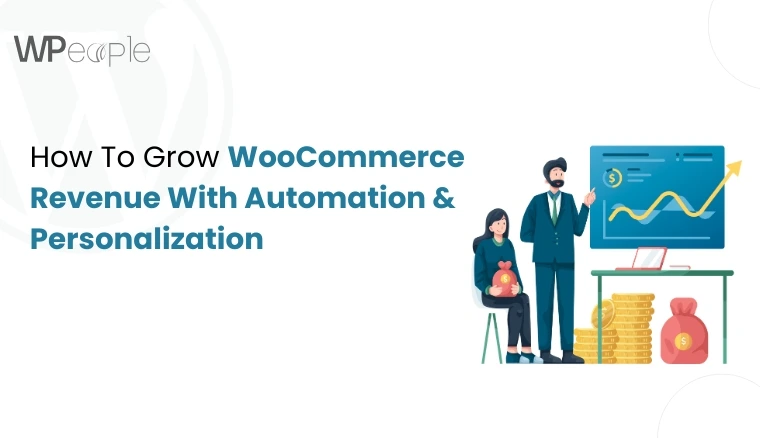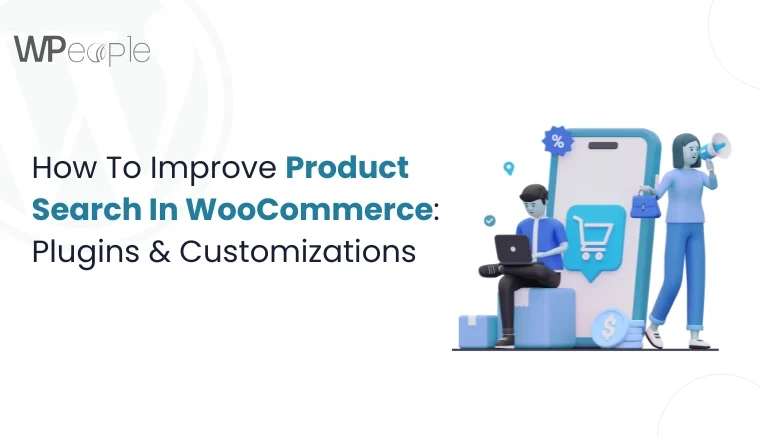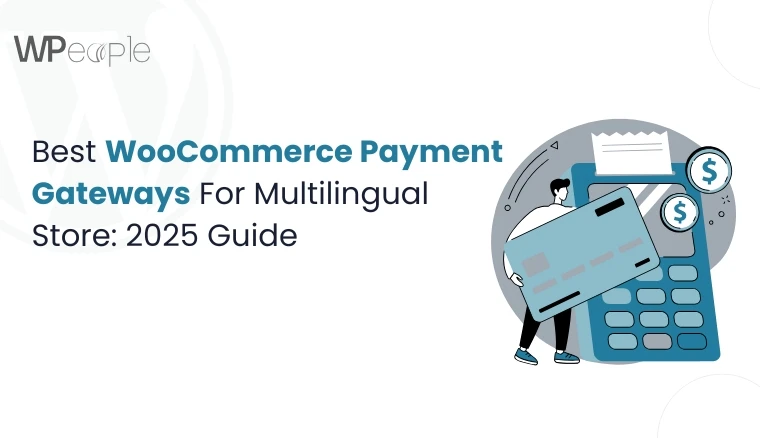
The eCommerce industry is evolving at breakneck speed, with trends and consumer expectations shifting constantly. As more businesses shift online, the competition grows fiercer every day. The backbone of any successful online business is a robust, scalable, and user-friendly eCommerce platform that can adapt to your unique needs.
When evaluating your options, it’s important to consider not just the current capabilities of a platform but also how it will serve your business as it grows. This guide aims to provide you with the detailed insights needed to navigate these choices and to help you pick the solution that maximizes efficiency, minimizes overhead, and ultimately drives sales.
Key Factors to Consider When Choosing an eCommerce Platform
Before diving into the comparison, let’s outline critical factors for your decision:
- Ease of Use: Is the platform intuitive for non-technical users?
- Total Cost: Upfront and recurring expenses, including hidden fees.
- Customization: Flexibility to tailor design and functionality.
- Payment Options: Supported gateways and transaction fees.
- Scalability: Ability to grow with your business.
- Support: Access to timely, reliable assistance.
- SEO & Marketing Tools: Built-in features for traffic and conversions.
- Security: Compliance and data protection measures.
BigCommerce vs WooCommerce: Overview
What is BigCommerce?
BigCommerce is a SaaS (Software-as-a-Service) platform offering an all-in-one solution for building and managing online stores. It’s fully hosted, meaning BigCommerce handles security, updates, and server maintenance. Ideal for businesses prioritizing ease and rapid setup, it includes built-in tools for SEO, marketing, and multi-channel selling.
Pros:
- No coding required.
- Robust built-in features (abandoned cart recovery, product reviews).
- PCI compliance and enterprise-grade security.
- Scalable cloud hosting.
Cons:
- Limited design customization without coding.
- Sales thresholds on lower-tier plans.
What is WooCommerce?
WooCommerce is a free, open-source plugin for WordPress, transforming any site into a customizable online store. It’s self-hosted, granting full control over design, hosting, and extensions. Perfect for users wanting flexibility and ownership, especially those already familiar with WordPress.
Pros:
- Complete control over every aspect of your store.
- Vast library of plugins and themes (59,000+ free WordPress plugins).
- No platform-imposed sales limits.
- Lower initial costs with budget-friendly hosting.
Cons:
- Requires hands-on management (updates, security, backups).
- Steeper learning curve for beginners.
Head-to-Head Comparison
1. Ease of Use
BigCommerce:
- Beginner-Friendly: Drag-and-drop editor, pre-built templates, and a guided setup wizard let you launch in hours.
- No Technical Maintenance: Automatic updates and managed hosting simplify operations.
WooCommerce:
- WordPress Knowledge Needed: Requires installing WordPress, plugins, and configuring settings.
- DIY Approach: Greater flexibility but demands time to learn themes, plugins, and hosting management.
Verdict: BigCommerce wins for simplicity, while WooCommerce suits tech-savvy users.
2. Cost Breakdown
| Expense | BigCommerce | WooCommerce |
| Starting Plan | $29/month (Standard) | ~3−3−10/month (Hosting) + Domain ($15) |
| Transaction Fees | 0% (with native gateways) | Varies by payment gateway (e.g., Stripe: 2.9% + $0.30) |
| Themes | Free + Premium (150−150−300) | Free + Premium (50−50−200) |
| Plugins/Apps | Free + Paid apps (10−10−300+/mo) | Free + Premium plugins (20−20−200/year) |
| Scalability Costs | Plan upgrades (+$150/mo thresholds) | Hosting upgrades (~30−30−100+/mo) |
Verdict: WooCommerce is cheaper initially, but costs can rise with premium tools. BigCommerce offers predictable pricing but higher entry costs.
3. Payment Options & Fees
BigCommerce:
- 65+ native gateways (Stripe, PayPal, Apple Pay).
- Zero transaction fees if using BigCommerce Payments.
- International currency support.
WooCommerce:
- Supports 140+ gateways via plugins (Stripe, Square, Authorize.Net).
- Transaction fees depend on the gateway (e.g., PayPal: 3.49% + $0.49).
- Multi-currency requires plugins like WooCommerce Multi-Currency.
Verdict: Tie. Both offer extensive options, but BigCommerce edges out with no transaction fees on its native gateway.
4. Customization & Integrations
BigCommerce:
- 100+ free and paid apps (Email marketing, CRM, POS).
- Limited theme customization without CSS/HTML.
- API access for custom integrations.
WooCommerce:
- 59,000+ WordPress plugins + 1,000+ WooCommerce extensions.
- Full access to code for bespoke modifications.
- Integrates with Zapier, Mailchimp, and custom APIs.
Verdict: WooCommerce dominates with limitless customization.
5. Scalability
BigCommerce:
- Auto-scales with plan upgrades.
- Handles high traffic effortlessly via cloud hosting.
WooCommerce:
- Scalability depends on the hosting provider (e.g., WP Engine, Kinsta).
- Requires manual upgrades and optimization for traffic spikes.
Verdict: BigCommerce offers hassle-free scaling; WooCommerce requires technical oversight.
6. Support & Resources
BigCommerce:
- 24/7 live chat, phone, and email support.
- Extensive knowledge base and community forums.
WooCommerce:
- Relies on community forums and third-party developers.
- Premium support via hosting providers (e.g., SiteGround, Bluehost).
Verdict: BigCommerce provides dedicated support; WooCommerce users need self-reliance.
7. SEO & Marketing
BigCommerce:
- Built-in SEO tools (custom URLs, meta tags).
- Multi-channel selling (Amazon, eBay, Instagram).
WooCommerce:
- Requires plugins (Yoast SEO, MonsterInsights) for advanced SEO.
- Integrates with Google Ads, Facebook Pixel via plugins.
Verdict: BigCommerce offers out-of-the-box tools; WooCommerce needs plugins but is more flexible.
Who Should Choose BigCommerce?
BigCommerce is ideally suited for businesses that want an all-in-one, hassle-free solution without having to manage the technical aspects of running an online store. Here are some key characteristics of businesses that might benefit from choosing BigCommerce:
- Beginner-Friendly: If you’re new to eCommerce and prefer a straightforward, managed platform, BigCommerce provides the simplicity you need.
- Time-Constrained Entrepreneurs: For those who want to focus on running their business rather than managing technical details, BigCommerce’s hosted environment is a huge advantage.
- Scalability Without Hassle: Companies anticipating rapid growth but lacking extensive technical resources will appreciate BigCommerce’s ability to scale seamlessly.
- Reliability and Security: Businesses that prioritize security, compliance, and uptime without the need for extensive technical oversight will find BigCommerce to be a strong contender.
Who Should Choose WooCommerce?
WooCommerce is perfect for entrepreneurs and businesses that require maximum flexibility and control over their online store. Consider WooCommerce if you:
- Value Customization: If you want to build a unique online shopping experience with bespoke features, WooCommerce’s open-source nature provides the freedom to do so.
- Have Technical Expertise: Whether you have an in-house development team or are comfortable working with WordPress, WooCommerce’s self-hosted environment offers limitless possibilities. With custom WooCommerce development, businesses can tailor their online stores to meet specific needs, ensuring a seamless shopping experience and enhanced functionality
- Are Budget-Conscious: With the core plugin being free and the option to choose affordable hosting solutions, WooCommerce can be very cost-effective—especially for startups willing to invest time in managing the platform.
- Need Extensive Plugin Ecosystem: Businesses that require advanced functionalities through integrations will benefit from WooCommerce’s vast ecosystem of themes and plugins.
- Plan to Grow Organically: If you are prepared to manage scalability yourself or have the technical know-how to optimize performance, WooCommerce can evolve with your business.
Real-World Case Studies and Success Stories
To bring the comparison to life, let’s look at a few examples of businesses that have successfully leveraged each platform:
BigCommerce Success Story:
Case Study: A Growing Retail Brand
A mid-sized retail brand chose BigCommerce for its rapid deployment and all-in-one management. With the platform handling everything from hosting to security, the company was able to focus on expanding its product range and marketing efforts. Within a year, they experienced a 40% increase in online sales, attributing much of their success to BigCommerce’s robust infrastructure and seamless scalability.
WooCommerce Success Story:
Case Study: A Niche Boutique Store
A niche boutique that specialized in artisanal products opted for WooCommerce due to its need for a highly customized storefront. By leveraging WooCommerce theme integration alongside custom themes and various marketing and inventory management plugins, the boutique was able to create a unique shopping experience. Their personalized approach not only enhanced user engagement but also led to a 50% increase in repeat customers, proving that flexibility can translate into strong customer loyalty.
Final Verdict
Deciding between BigCommerce and WooCommerce ultimately comes down to your business needs, technical expertise, and long-term vision for your online store.
- Choose BigCommerce if you need a turnkey solution that minimizes technical management and provides a hassle-free environment to focus on growing your business. Its managed hosting, robust security, and streamlined support make it an excellent choice for both beginners and rapidly scaling businesses.
- Opt for WooCommerce if you require complete control and customization. Its open-source framework allows you to tailor every aspect of your online store, making it ideal for businesses with unique requirements or those who already have a strong WordPress presence. While it may require more hands-on management, the flexibility and potential cost savings can be substantial in the long run.
Both platforms have their merits, and many successful online stores have thrived on each. The key is to assess your priorities—whether it’s ease of use, scalability, cost, or customization—and choose the platform that aligns with your business goals.
Frequently Asked Questions (FAQs)
1. Which platform is better for beginners?
For those new to eCommerce, BigCommerce is generally more user-friendly as it is a fully hosted solution with an intuitive interface and minimal setup requirements.
2. Can I switch from WooCommerce to BigCommerce (or vice versa) later?
Yes, while both platforms have their unique strengths, many businesses start on one platform and later migrate to the other as their needs evolve. However, migrations can be complex and should be planned carefully.
3. What about SEO capabilities?
Both BigCommerce and WooCommerce offer robust SEO tools. BigCommerce comes with built-in SEO features, while WooCommerce, running on WordPress, benefits from powerful SEO plugins like Yoast SEO, giving you granular control over on-page optimization.
4. Which platform handles security better?
BigCommerce takes care of security, backups, and updates as part of its hosted service. With WooCommerce, security is your responsibility, but by choosing a managed hosting provider and implementing best practices, you can achieve a similar level of protection.
5. Is WooCommerce really free?
The core WooCommerce plugin is free, but you will incur costs for hosting, domain registration, SSL certificates, and potentially premium themes or plugins.
6. Which platform supports more payment gateways?
Both platforms offer extensive payment gateway integrations. WooCommerce’s open-source nature provides more flexibility, while BigCommerce’s built-in integrations are optimized for ease of use and performance.
Consult with Our WordPress Experts On:
- WooCommerce Store
- Plugin Development
- Support & maintenance




